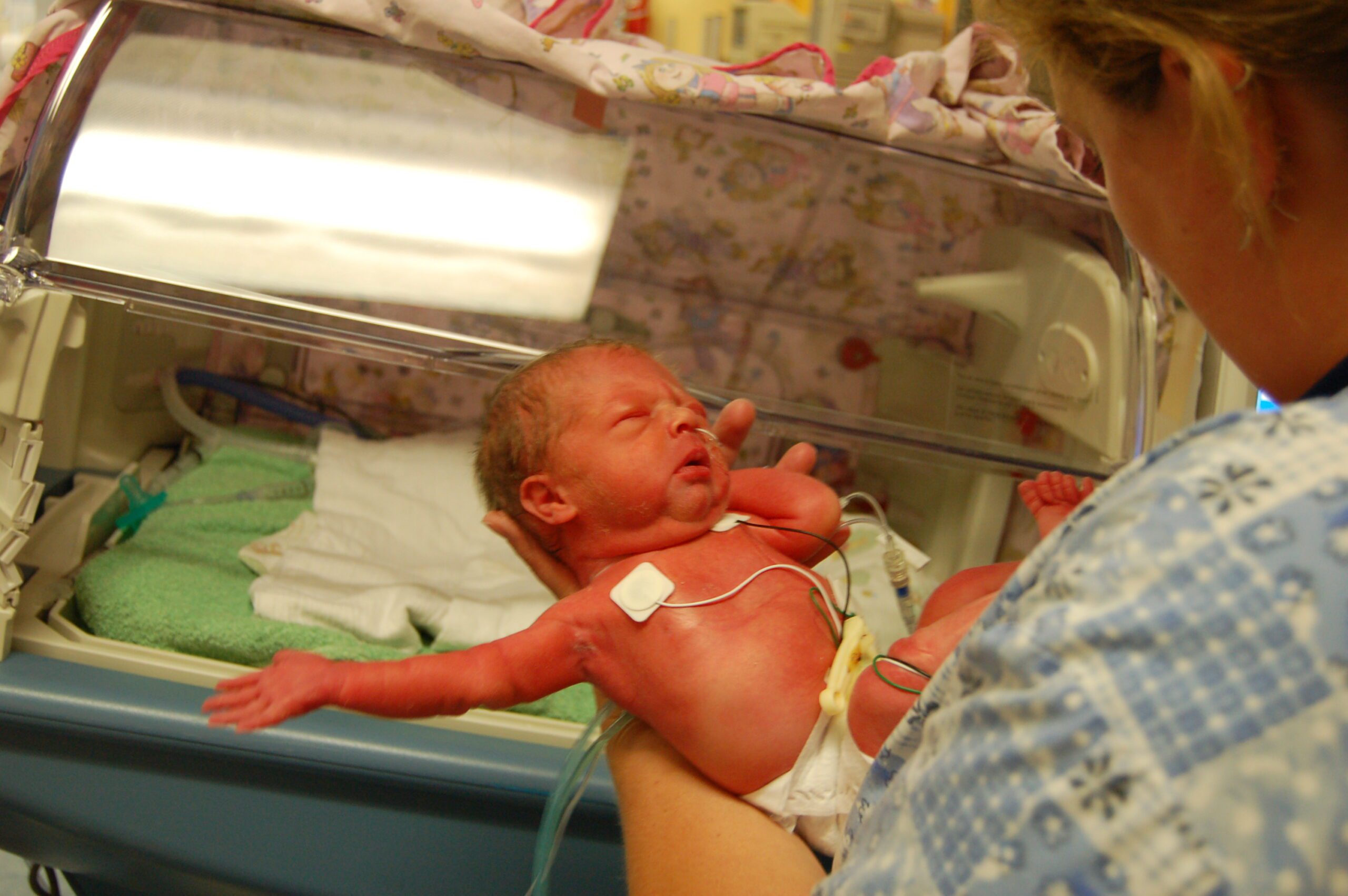I spent years trying to get pregnant—drug protocols, ultrasound screens, monthly breakdowns, bloodwork, sperm counts, and the quiet humiliation of having your most intimate hopes turned into data points. I know the desire to become a parent against great odds.
So when the BC government announced that it would begin covering one round of IVF, I felt an immediate and visceral empathy for the families who will now have a chance they thought was lost. I have been one of them and I know what it costs—financially, emotionally, physically, relationally, spiritually—the toll it takes on your sense of self, on your sense of time, on your understanding of fairness and fate.
But somewhere alongside that empathy, quietly and then insistently, came a second feeling—less noble, harder to admit, lodged not in principle but in the gut—a sourness I didn’t want to name, a heat behind the eyes I tried to rationalise away, a kind of grief-tinged indignation that whispered: why this, why now, why here, and where the hell is this funding when our children are already suffering inside the very systems this province built?
Prematurity
My children came early at 31 weeks—wee, impossibly fragile, hooked up to tubes and blinking under NICU lights for forty-two days. Two dozen medical staff were in the room when they were born. There were incubators, oxygen, round-the-clock vitals, specialists on rotation, lab results pinned to cribs, machines that beeped and screamed, and the million-dollar infrastructure of neonatal survival keeping them tethered to life. Thirteen years ago, the cost of that care probably tallied up to seven figures before we ever brought them home.
Then there was the pain, the exhaustion, the lost income and stalled careers, the panic that settled in our bones and never quite left, the vigilance we learned overnight and never got to unlearn, the way the future got rewritten in every sleepless hour between shift changes and test results.
There were years of repeat hospitalisations—pneumonia, infections, and terrifying fevers that came without warning and stayed just long enough to turn our lives upside down. There were months of chasing down specialists, of waiting for callbacks, of explaining symptoms again and again to people too busy or too burnt out to really hear us.
And through all of that—through the breath counts and nebulisers, the sleepless nights and medically necessary absences, the fevers and the fear and the quiet moments of joy stolen between medical crises—we loved our children with every cell in our bodies, every penny in our accounts, and every ounce of hope we could muster.
School
And then came kindergarten—backpacks, new shoes, reluctant goodbyes—and we learned, almost instantly, that the system our children were entering was not built for them, not shaped by care, not even neutral, but designed to destroy them.
While other parents got to enjoy first milestones and photos of crafts hung proudly on the fridge, we were fielding threats from a principal who said she’d call the police on our six-year-old. While others were invited into classrooms to volunteer, we were summoned to emergency meetings where the words “disruptive,” “non-compliant,” and “unsafe” were hurled at our child like accusations. We were stigmatised, bullied, pushed out. We were told that if we just parented differently, everything would be fine. We were told to be grateful for what little support existed. Our children were surveilled, dismissed, reprimanded for being overwhelmed, punished for having needs.
We watched, helpless and furious, as the very institutions that claimed to serve children quietly brutalised them instead—denying accommodations, ignoring medical letters, pitting parents against each other in scarcity-based games of access and compliance. We were made to feel like burdens, troublemakers, unstable and unreasonable, simply for refusing to let our children be mistreated. And the grief of that—grief without ceremony, without closure, without acknowledgement—sits under the skin like a stone.
-
This broke me: a parent’s experience of school advocacy
Parenting is not a monolith. Neither is disability. Every family walks a different path, shaped by bodies, resources, identities, and institutions. This piece reflects one perspective—mine—as a disabled parent navigating systemic harm, health collapse, and the fierce love that remains. It is not…
Scarcity logic and systemic neglect
And still—we loved. Fiercely. Constantly. Without condition.
Love is enough—it has to be, because it’s the only thing that consistently shows up. But love, on its own, was never meant to carry this much weight. Love was never meant to stand in for policy, to substitute for staffing, to be used as a patch for systems that have abdicated their responsibility. What’s missing isn’t love. What’s missing is everything that was supposed to meet it.
Because the system isn’t enough—and hasn’t been for a very long time. And pretending otherwise, especially in the wake of an announcement like this, is gaslighting.
I’ve spent years rejecting zero-sum logic—fighting it not only as a moral failing but as a deliberate political strategy, a rigged economy of attention and care that thrives on competition and resentment, a way of saying no to most people while appearing to say yes to a lucky few. Scarcity logic isn’t accidental; it’s engineered. It’s not just that support is limited—it’s that the system is designed to appear fair while distributing harm. That’s how it maintains legitimacy.
Scarcity logic pits parent against parent, need against need, diagnosis against diagnosis, forcing us to fight for crumbs while being told it’s necessary. It teaches us to swallow our rage, to personalise our grief, to feel shame instead of solidarity, and to believe that if someone else gets support, it must mean we weren’t worthy enough to receive it ourselves. It turns survival into spectacle and help into lottery, creating the illusion that compassion is being offered when what’s actually being delivered is selective access paired with manufactured austerity.
I know what it does to your body to sit in a meeting with your brain on fire, and school telling you they’re abandoning your child. I know the ache of reading a policy update that sounds like hope but functions like pain. I know the quiet fury of watching the system lift one person up just high enough to say “look, we care,” while leaving the rest of us buried under the same unpaid labour, exhausted advocacy, and impossible choices.
And I know what it means to refuse that logic. To say: the problem isn’t that someone else got what they needed. The problem is that we all should have.
Because the answer to systemic neglect is not more gatekeeping, more rationing, more justifications for denial disguised as metrics or pilot programs or individualised planning. The answer is universal design, automatic eligibility, and political will that refuses to confuse stinginess with justice. The answer is coherence—a system that doesn’t make you fight to prove harm before offering help, that doesn’t force you to gamble your child’s wellbeing on institutional goodwill.
-
Engineered famine in public education
In British Columbia schools today, we are not facing a behaviour crisis—we are facing a famine of care. This essay weaves together personal memory, systemic critique, and deep empathy for teachers and families alike to ask why our schools are starving the very…
What the press release doesn’t say
This is the part no one includes in the press release: children conceived through IVF are more likely to be born early, more likely to have asthma, more likely to be medically complex—not because they are broken or tragic, not because they are less wanted, but because medically assisted reproduction carries real, known, documented risks. Risks that should be anticipated, not ignored. Risks that demand preparation, not public relations. These are children who will need more from the systems around them—not less.
And what terrifies me—what should terrify anyone paying attention—is that the same government willing to fund conception remains utterly unwilling to invest in the consequences of life.
We are building families into systems we already know will harm them—systems that isolate, exclude, underdeliver, punish, and ration care through bureaucratic fog and moral detachment—and we are calling it equity, access, and generosity, when in fact it is bait, betrayal, and deferral of care dressed in the language of hope.
A government that funds the beginning but refuses the follow-through is not offering compassion. It is offering risk without infrastructure, survival without guarantee, parenting without a net.
Government isn’t supposed to create this kind of pain. It’s meant to be measured, careful, responsive—not just forming families but building the conditions in which they can thrive. We’re meant to have schools ready to welcome the children we help bring into the world. Hospitals that catch us when we fall. Social supports that don’t require trauma to unlock, or desperation to justify.
That’s what’s missing.
So when I hear that IVF will be publicly funded, I don’t feel anger toward the families finally being given a chance. I feel grief—grief that the same care, the same hope, the same belief in the future does not extend to the children already here, especially those who need more than the average, more than the system is currently willing to give.
Because the truth is this: children who come into the world with greater needs are not less worthy. They are simply more likely to be failed.
And yes—I want people to become parents. Desperately, achingly, without restriction or shame. But I want the children they bring into this world to be met by that world—to be welcomed with infrastructure, not punished for their needs; to be surrounded by care, not shamed for its cost; to be protected not only by their parents’ love but by a system that understands what love alone can’t do.
And right now, we are failing them.
Follow-through
I want us to stop funding parenthood as if it ends at birth, as if love will suffice in the absence of structural support, as if the system’s job is to create lives and then walk away.
Because if you are funding IVF in a province where disabled children are isolated, restrained, suspended, neglected, academically discarded, and functionally erased—then you are not creating opportunity, you are creating harm and distributing grief across a broader population and calling it hope.
And I want you to understand that I say this as someone who took the deal—who believed that surviving the NICU meant we were through the worst of it, who believed that school would be safer than the hospital, who believed that once our children were born and breathing and alive, the system would step in and do what it said it was designed to do.
But it didn’t. It hasn’t. It won’t—unless we change it.
We are not in need of more pilot projects, more rationing mechanisms, more announcements that make people feel chosen while quietly expanding the pipeline of suffering.
We are in need of structural coherence—of a public commitment to follow-through, of a government willing to build the conditions for dignity instead of marketing cycles of false hope, of policies that do not stop at conception but extend through childhood and into adolescence with the full weight of social investment and moral responsibility behind them.
Because right now, the province is handing out keys to a house that is already on fire, and some of us are inside with our children—holding them tight, throwing ourselves over them, screaming into the void for help that never comes.









